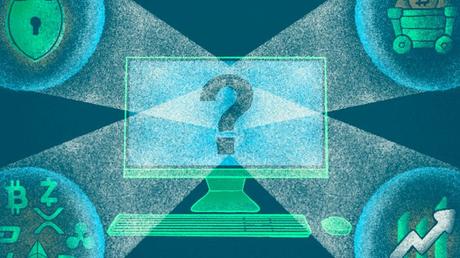
A blockchain devoid of bitcoin contains nonfungible tokens (NFTs), supply chain initiatives, and the Metaverse, among other things.
Although Bitcoin (BTC) is the most well-known blockchain application, there are others. Without a bank or middleman, blockchain technology may be used to settle remittances, digital assets, and online payments.
The most promising uses of blockchain technology are smart contracts, reputation systems, public services, IoT, and security services.
A blockchain without monetary value is a distributed ledger that monitors the status of a shared database. Once uploaded, the database may contain a record of bitcoin transactions or critical voting information.
Blockchain is not exclusive to cryptocurrency. Blockchain focuses on decentralized data storage and the consensus of digital assets, which may include cryptocurrency. Is blockchain valuable?
Blockchain technology might replace business models dependent on third parties and centralized operations. NFTs were published on the Ethereum network in late 2017; they are a disruptive blockchain innovation impacting the intellectual property. Before investing, evaluate the risks and benefits of NFTs.
Does blockchain need digital currency?
Private blockchains don’t need coins, only public ones. Blockchains are both private and public. A public blockchain allows anybody to join without authorization. Private blockchains are invitation-only, single-organization networks that lack decentralization.
Permissionless blockchains, such as Bitcoin, provide miners a reward for solving a math problem. This incentive, which is typically provided in the network’s native currency, drives the system and facilitates consensus.  .
As Bitcoin mining is rewarding, thousands of machines are involved. By decreasing the advantages of bitcoin, the incentive to maintain a node and participate in the consensus process reduces, hence raising the chance of crypto theft.
The Hyperledger and Corda blockchains are private. Hyperledger constructs distributed ledgers for secret corporate transactions using private blockchains. Corda is a permissioned blockchain project intended for the development of interoperable, distributed networks with private transactions. These private blockchains are governed by centralized corporations, thus bitcoins are not needed to power or incentivize network members.
Blockchain investments without cryptocurrencies?

Investing in blockchain technology is complex. Investing in blockchain-based companies allows you to investigate blockchain beyond bitcoin.
Users and corporations wish to streamline corporate processes, accelerate transactions, enhance security and transparency, and use blockchain as a service (BaaS). Invest in Microsoft or IBM BaaS to grasp blockchain technology.
You may also purchase ownership in a company that develops blockchain solutions to invest indirectly in distributed ledger technology. The benefits of Blockchain extend beyond supporting cryptocurrencies.
The supply chain is affected by blockchain. With an immutable public record of all transactions, it is possible to track a crop back to its original farm. A distributed ledger may track the production, shipment, and delivery of a trash collector’s recycled product. Invest in these firms.
When investing in blockchain-based businesses, be cautious of technology errors, hard forks, and human error. Spend no more than you can afford to lose.
Contracts without the blockchain?
Using blockchain technology, smart contracts may run independently of a third party. Similar to smart contracts, databases may have self-executing triggers and stored processes. Administrators may undo transactions, erase logs, etc., to make it seem as though they never took place. Blockchain will always be required for tamper-proof, secure smart contracts. Bitcoin, the most popular cryptocurrency, does not support smart contracts.
The widespread usage of smart contracts is impossible without blockchain. Off-chain data published to the distributed ledger must be accessed by blockchain oracles for smart contracts to function. Oracles give a convenient means to access off-chain resources, but doing so necessitates the formation of a new contract, which may undermine the decentralized advantages of smart contracts.
It’s a possible failure point. In the event of a system error, an oracle may be unable to disseminate data, provide inaccurate data, or cease activities. Before widespread use, smart contracts must overcome these challenges.
Leave this field empty if you're human: